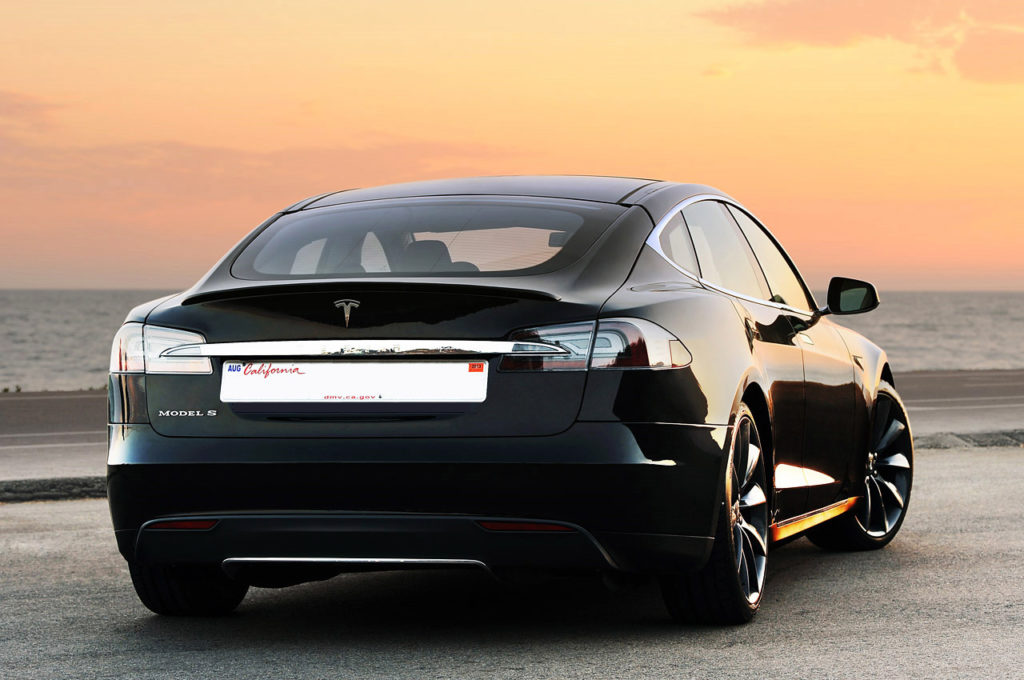
PALO ALTO, CA – High demand for the Model S from Silicon Valley auto manufacturer Tesla (TSLA) is greatly increasing demand for holier-than-thou electric-themed vanity plates, a spokesman for the company said during a press conference this morning.
“A large part of purchasing this automobile is the sense that one is saving the environment, and that others aren’t,” said Crabtree Wolstenthorne, head of the company’s new Plebiscite Differentiation division. “Many of our lucky customers have already successfully purchased appropriate plates such as ‘VOLTS4ME’ and ‘GASSUCKS’ but, as yet more concerned environmentalists join our ranks, the archaic seven-character restriction on US license plates is making it exceptionally hard for us to help them secure an appropriately haughty message for other road users”.
The company has lodged a case with the US Supreme Court demanding a change from seven to thirty characters on standard US license plates for electric vehicles only. “The restriction may seem unusual”, Wolstenthorne added, “but owners of gas-powered vehicles have less of relevance to say to the outside world”. When questioned about the increased difficulty for law enforcement in reading these new plates, he noted with a laugh, “our customers are all just going to hire a lawyer anyway”.
In anticipation of a successful verdict, Tesla is allowing its customers to pre-purchase the new vanity plates. “We’ve had a great response from our clients so far,” Wolstenthorne mentioned, “only this morning I sent home two happy individuals with ‘UH8PLANET’ and ‘MY4THCARISGREENERTHANYOURONLYCAR'”.
The 4,600lb Tesla model S has been highly praised for its cat-like agility by many tech bloggers in the computer industry.

“The company has lodged a case with the US Supreme Court”
WAT?
A litigant cannot initiate legal action at the US Supreme Court level (with a few extreme exceptions that have nothing to do with license plates). The USSC is the highest-level appellate court. Appeals therein may only proceed once certiorari is granted by the high court. That happens in about 1 percent of cases.
A litigant such as Tesla must initiate litigation in a trial level court, either state or federal. Given the litigation seems to involve multiple states, a federal court would be the route taken.
HOWEVER…
In the United States, one cannot use litigation to force what is essentially a legislative matter, so any suit seems doomed on the runway. Now Tesla might try to claim a First Amendment issue is at stake here, but they would not have what is legally known as “standing” — they cannot sue about someone else’s First Amendment claims.
This article isn’t serious, it’s satire. It’s a joke.